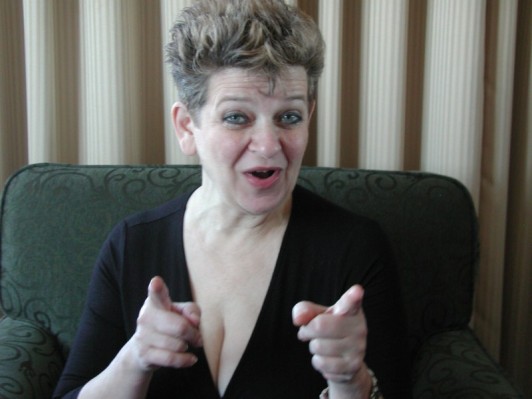Gelfand’s Gift
Israel Gelfand was my scientific adviser from the time I was 15. This is the story of how Gelfand helped me, when at 20 I was an undergrad at Moscow State University. At that time, I was married to Sasha (Alexander) Goncharov, who was also Gelfand’s student.
Sasha was more driven by mathematics than I. I had a lot of different interests: I wanted to hang out with friends, go to movies and read books. Sasha only wanted to do mathematics. His only other obsession was with what our colleagues (including me) were doing mathematically. So he was constantly asking me about the math problems I was thinking about.
For example, I was sitting at my side of the desk working, and he asked me to tell him about my problem. A few minutes later, I was forced to interrupt my work to go grocery shopping, because the household chores fell to me. As soon as I returned with bread and milk, Sasha excitedly told me the solution to my problem. It made me feel stupid, as if I should have solved it while I was waiting in the line for bread and milk. That feeling blocked out all the other feelings I should have been noticing, such as frustration and annoyance with Sasha.
Without his interference, I would have happily solved the problem myself. I was about to start my serious research, but I worried that I’d end up as a supplier of new problems for his papers.
You might wonder why I didn’t stop sharing my math with Sasha. But at that time, I wasn’t very in touch with my feelings and I prided myself on being a logical person. The idea that a husband and wife would discuss their work together seemed logical. Besides, even though I wasn’t particularly interested, Sasha was always ready to tell me about his math problems. It seemed important for me to be fair and to reciprocate. So I was stuck in a situation I didn’t know how to resolve.
I never confided this issue to any math colleagues. I never mentioned it to Gelfand — mostly because I was too scared of him to initiate any conversation. Besides, Gelfand delegated most of his responsibilities to others, because he was quite famous and busy. For example, all official paperwork related to his adviser role was done by Alexandre Kirillov. With me avoiding Gelfand and Gelfand being busy, we almost never spoke one-on-one.
You can understand my surprise when one day Gelfand approached Sasha and me to have a chat. He told us that we were about to start our own research, and while he permitted me to ask Sasha about what he was doing, he would not allow Sasha to interfere with my research.
Gelfand was a great judge of character. Without anyone telling him, he perceived what was going on in our marriage and gave me an excuse to stop Sasha’s prying. It was an appreciated gift.
Share: I would like to tell you a story from my childhood and how I started on my math path.
I would like to tell you a story from my childhood and how I started on my math path. I am celebrating the first hundred essays I have written for my blog. My English teacher and editor Sue Katz edited most of them. Sue Katz not only corrects my English mistakes, but also helps me to choose better and more descriptive words and rearranges my text so that it doesn’t sound like a direct translation from Russian.
I am celebrating the first hundred essays I have written for my blog. My English teacher and editor Sue Katz edited most of them. Sue Katz not only corrects my English mistakes, but also helps me to choose better and more descriptive words and rearranges my text so that it doesn’t sound like a direct translation from Russian. I bought Richard a year and a half ago, and I bought him for his looks. Richard is slim, black and shiny. Richard is my first laptop, an HP Pavilion dv2000.
I bought Richard a year and a half ago, and I bought him for his looks. Richard is slim, black and shiny. Richard is my first laptop, an HP Pavilion dv2000.